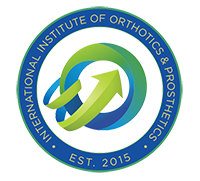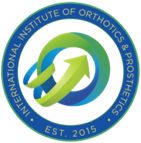Reports
NCOPE ANNUAL REPORTS AND STUDIES
EDUCATIONAL SUMMIT REPORT
ISOP WHO TRAINING GUIDELINES
MICROSOFT WORD – TOOLS FOR AMERICA’S BEST
NATIONAL COUNCIL ON DISABILITY
WELCOMING SERVICE MEMBERS AND VETERANS HOME
COMMON EMPLOYER QUESTIONS ABOUT VETERANS WITH TRAUMATIC BRAIN INJURY & POST TRAUMATIC STRESS DISORDER
WOUNDED WARRIOR CAREERS – A FOUR-YEAR REPORT
EMPLOYER’S GUIDE TO WELCOMING AND SUPPORTING WOUNDED WARRIORS
Patent Innovation
We’re always interested in new innovations, and unique concepts, even if only some of them can ever be patented. And we’re excited that inventors want to partner with IIOP, regardless of their current patent status. We’re excited that IIOP can help bring new innovations to the Orthotic and Prosthetic profession.
If you’re seeking additional information about protecting your idea, check out the following links that can help you make the best decision for yourself:
GENERAL INFO | HOW TO FILE A PATENT
ISPO USAID developing country programme report now published
ISPO is pleased to inform the global P&O community that the final report on the ISPO-USAID programme “Rehabilitation of people with physical disabilities in developing countries” has recently been published. We invite you to read this document, which is another proof of our long-term positive collaborative agreement with the United States Agency for International Development (USAID). This programme has accomplished much to support and inform us and the P&O community about the field of P&O in developing countries. It also offers us new hope and opportunities to develop our sector.
ISPO successfully delivered three distinct activities:
- Scholarship support
- Measuring the impact of training in prosthetics and orthotics
- Enhancement of prosthetics and orthotics service provision
Firstly, our successful scholarship programme saw 112 candidates complete their scholarships to become prosthetists/orthotists and orthopaedic technologists, reflecting a 95% student progression rate due to rigorous selection criteria and students with a dedication to their studies. These scholarship alumni belonged to 34 different home countries and were all committed to work in prosthetics and orthotics clinical services after graduation. We welcome these new professionals into our field and look to them for fresh ideas and solutions to help meet the need for better services.
Secondly our impact assessment series with field visits to 13 countries produced six impact assessment reports. When analysed all together, four themes of recommendations emerged for sector development:
- Theme 1 = Leadership and Governance
- Theme 2 = Workforce
- Theme 3 = Service Provision
- Theme 4 = Practice and Technology
The impact assessment also generated new information about modes of learning: there were no significant differences in the professional practice of orthopaedic technologist graduates who attend face-to face training compared to blended distance learning training.
We also discovered that ISPO Category I trained personnel took on more senior positions and higher level responsibilities in clinical, teaching and management roles than their ISPO Category II trained colleagues in developing countries. There are not enough ISPO Category I personnel working in less resourced settings.
Thirdly, our work in partnership with the World Health Organization has resulted in progress towards the first WHO Standards for Prosthetics and Orthotics Service Provision. We believe that this is an extremely important piece of work and that the launch of these standards at our World Congress in 2017 will be a catalyst for the development of the prosthetics and orthotics sector. The Standards will be a significant milestone in providing UN member states and other stakeholders with guidance and encouragement to enhance prosthetics and orthotics services in all countries, but will be of special significance in developing countries where poverty and disability are closely associated.
We look forward to building on the body of work derived from the programme and improving the quality of life of the people we serve in prosthetics and orthotics services.

